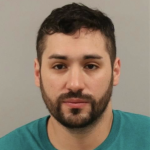TRENTON – Fifty to 90 medical marijuana dispensaries will be needed in New Jersey in the next three years to keep up with the Medicinal Marijuana Program’s rapidly expanding patient population, according to a New Jersey Department of Health report issued April 1.
The Medicinal Marijuana Program’s Biennial Report shows adding more access points for patients to get therapy will reduce current prices and drive times, and geographically diversify the market.
“The Medicinal Marijuana Program has always prioritized patient needs above all else. Whether they are individuals with debilitating chronic pain, folks with end-stage cancer, or veterans with post-traumatic stress disorder, patients simply cannot wait any longer for therapy that is both more affordable and easier to access,” Health Commissioner Dr. Shereef Elnahal stated. “The need for this program is greater than ever.”
The report indicates the need to expand cultivation capacity. The department selected six more businesses in December 2018 to apply for permits to grow, manufacture and dispense marijuana.
Last year, the Murphy Administration added five new medical conditions (anxiety, migraines, two forms of chronic pain and Tourette’s Syndrome), and in January added opioid use disorder coupled with medication-assisted treatment.
This has led to a total of 43,710 patients participating in the program — 26,687 of whom joined since the Murphy Administration began.
“Patients are at the forefront of our decision-making. Last month, I met with a patient named Lindsay, who has been battling ALS for seven years,” Elnahal stated. “She is a constant reminder that as long as we maintain a compassionate program, we must and will move forward with expanding the number of growers in the program to increase supply.”
New Jersey’s six Alternative Treatment Centers nearly doubled their revenues from 2017 to 2018, earning $29 million and $53 million respectively.
The department’s analyses of prices showed no evidence that dispensaries were charging excessive prices but did find evidence that high prices were artificially suppressing patient demand.
The department looked at average prices of medical marijuana per ounce sold during 2017 and 2018, and compared to prices on the illegal market.
Both analyses showed comparable prices in New Jersey’s regulated market if patients were eligible for discounts but showed higher prices if patients weren’t eligible for discounts.
However, for whole premium flower, prices at five out of six dispensaries were $100 more per ounce than the illegal market price.
“Keeping prices below the illegal market is the best way to ensure patients purchase lab-tested products at regulated dispensaries and responsibly use the therapy under the supervision of a health care provider,” stated Jeff Brown, assistant commissioner of the Division of Medicinal Marijuana. “The need to expand the industry is clear, and we are committed to making it happen.”
The department also analyzed patients’ average monthly purchases and found that among patients making purchases, the average purchase per month was just over an ounce. However, the law’s 2-ounce maximum per month limited patients’ ability to purchase more if their symptoms became more severe in a given month.
Based on this analysis and patient feedback, the department recommends – consistent with prior recommendations – raising the monthly limit incrementally for all patients and eliminating the limit altogether for terminal patients.
“Many of the qualifying conditions like cancer and inflammatory bowel disease can be severe and vary in severity month to month, so patients’ demand for relief may change based on their symptoms,” Elnahal stated.
“Raising the maximum would provide more flexibility for patients to manage their pain.”
The top five medical conditions among patients who have qualified for the program are: Chronic pain due to musculoskeletal disorders (25.4 percent), anxiety (20.2 percent), intractable skeletal spasticity (19.9 percent), PTSD (8.8 percent), and severe or chronic pain due to cancer or HIV (6.85 percent).
There are nearly 1,800 caregivers and 937 doctors participating in the Medicinal Marijuana Program. The growing number of physicians—an increase of more than 40 percent in the Murphy Administration—is largely the result of a series of 11 lectures Elnahal has given to 4,000 doctors, nurses and other health professionals to discuss the benefits of the program.
Those lectures focused on evidence that supports marijuana as an appropriate treatment for patients with certain debilitating conditions.
For information, visit the Department’s Medicinal Marijuana webpage.








